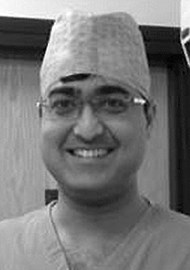The natural history of non-clear cell renal cell carcinoma (NCC-RCC) post-nephrectomy with curative intent remains poorly defined. The surveillance protocols are largely dependent on guidelines followed for clear cell RCC (CC-RCC). In this study, the authors evaluated the relapse patterns and implications for post-nephrectomy surveillance in patients with high-risk NCC-RCC enrolled in the E2805 trial. A total of 403 patients with NCC-RCC were enrolled in the study. Participants received 54 months of adjuvant therapy with sunitinib, sorafenib or placebo and underwent surveillance imaging for 10 years. Protocol consisted of computed tomography of chest, abdomen, pelvis (CT CAP) every 4.5 months during adjuvant treatment, every six months for two years and then at least annually for 10 years. During a median follow-up of 6.2 years, 36% of NCC-RCC recurred. Five-year recurrence rates were comparable for non-clear (34.6%) and clear cell RCC (39.5%). However, NCC-RCC were more likely to have abdominal relapse (five years recurrence rate 26.4% vs. 18.2%) and significantly less likely to have chest relapse (five-year recurrence 13.7% vs. 20.9%). Of the 144 NCC-RCC recurrences, 13 (9%) developed beyond five years postoperatively. Current surveillance guidelines would potentially capture approximately 90% of relapse at any sites. NCC-RCC may show a distinct pattern of relapse and the findings of the study emphasise the importance of continued cross-sectional long-term imaging.
Patterns of relapse and implications for post-nephrectomy surveillance in patients with high-risk NCC-RCC
Reviewed by Zeeshan Aslam
Patterns of relapse and implications for post-nephrectomy surveillance in patients with high risk nonclear cell RCC (NCC-RCC): subgroup analysis of the phase 3 ECOG-ACRIN E2805 trial.
CONTRIBUTOR
Zeeshan Aslam
Ninewells Hospital, Dundee, UK; Surgical Tutor, RCPS Glasgow.
View Full Profile



